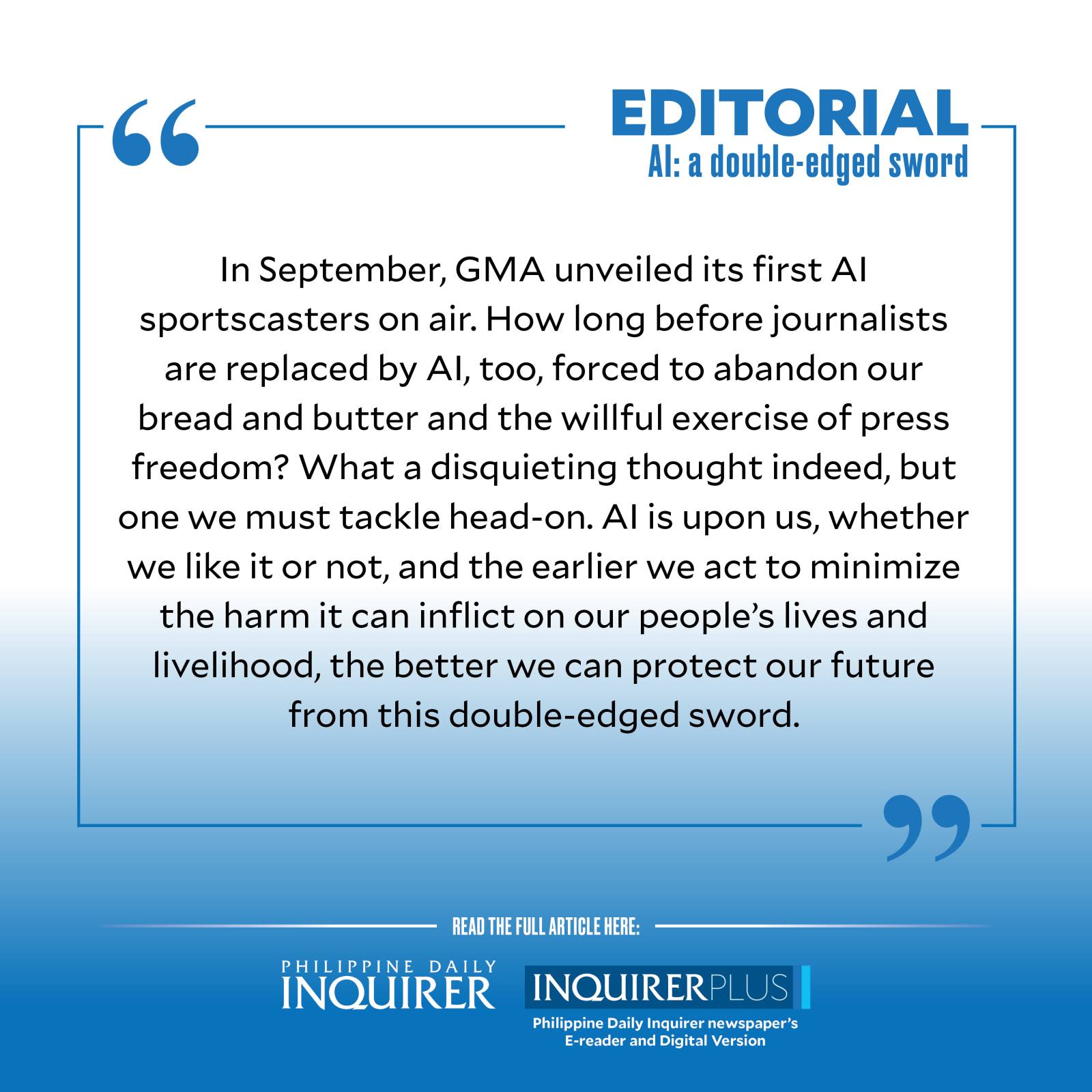AI: a double-edged sword

Humanity is still figuring out artificial intelligence (AI), and our worries about this strange new technology, while warranted, stem largely from the fear of the unknown. At the heart of our collective anxiety is the idea that people, for all their talent and ingenuity, will someday be replaced by an object of their own creation far more talented and ingenious than they can ever hope to be.
This fear will only grow over time as machine learning becomes more and more adept at simulating (or appropriating) human knowledge, engendering questions that once belonged only in the realm of science fiction: Will AI achieve sentience? Is any job safe from a takeover by machines? Can AI overrun civilization?
But even such existential crises-in-the-making barely touch the tip of the iceberg. We have yet to truly confront the malevolent prospects that AI brings. Think of dictators tapping AI to influence elections, smear opponents and spy on foreign governments. Or cybercriminals using it to develop sophisticated social engineering and phishing techniques. Or terrorists making use of AI to invent new pathogens to attack populations. Or AI-generated deepfakes being used to spread disinformation, instigating conflict and chaos the world over.
To a great extent, some of these scenarios are already occurring even without AI assistance, but imagine how deep-learning algorithms can accelerate our descent into such a post-truth dystopian hell.
On the flip side, AI brings with it an alluring promise. World leaders believe AI can put an end to some of the enduring ills afflicting the globe, via “new knowledge, new opportunities for economic growth, new advances in human capability, and the chance to solve global problems we once thought beyond us,” as British Prime Minister Rishi Sunak wrote in a commentary that appeared on this page on Oct. 30.
“AI can help solve world hunger by preventing crop failures and making it cheaper and easier to grow food. It can help accelerate the transition to net zero. And it is already making extraordinary breakthroughs in health and medicine, aiding us in the search for new dementia treatments and vaccines for cancer,” he said.
The possibilities are endless in either direction, but whether AI will be a force of good or evil ultimately depends on what our government is going to do to mitigate the risks, while exacting immense gain from it—a tall order for a country that is still struggling against online attacks and data breaches.
On Nov. 1, the Philippines joined 27 other nations and the European Union in signing the Bletchley Declaration during the AI Safety Summit organized by the United Kingdom.
Among other objectives, the signatories resolved to “work together in an inclusive manner to ensure human-centric, trustworthy and responsible AI that is safe,” and support “the good of all through existing international fora and other relevant initiatives, to promote cooperation to address the broad range of risks posed by AI.”
Beyond signing this pact, however, the Philippine government has yet to devote any meaningful attention to AI regulation. In May 2021, the Department of Trade and Industry launched an ambitious national roadmap to hasten AI adoption in the country with the goal of becoming an AI powerhouse in the region. But not much progress has been made since.
Six House bills and two Senate resolutions on AI concerns have been filed, but with little traction among lawmakers to pursue them, and zero prodding from the executive branch.
To date, we have heard of only a few localized solutions for AI, such as guidelines by the University of the Philippines to prevent cheating through apps like ChatGPT, as well as the Supreme Court’s plans to use AI tools to streamline court processes.
Information and Communications Technology Secretary Ivan John Uy has warned that AI could deal a catastrophic blow to our labor force. “Without proper regulation from the government, it could become dangerous, it could become destructive as it evolves. And it’s evolving very, very fast,” he said in June.
But we are more interested in hearing his proposed solutions. What strategies are our officials forming in the face of this looming threat? Are there even any?
Time is of the essence because, in the absence of a clear policy direction, we risk being caught flat-footed as AI disrupts production chains and industries in the blink of an eye, from finance and health care to agriculture, logistics—and even the arts and media communications.
In September, GMA unveiled its first AI sportscasters on air. How long before journalists are replaced by AI, too, forced to abandon our bread and butter and the willful exercise of press freedom?
What a disquieting thought indeed, but one we must tackle head-on. AI is upon us, whether we like it or not, and the earlier we act to minimize the harm it can inflict on our people’s lives and livelihood, the better we can protect our future from this double-edged sword.




















